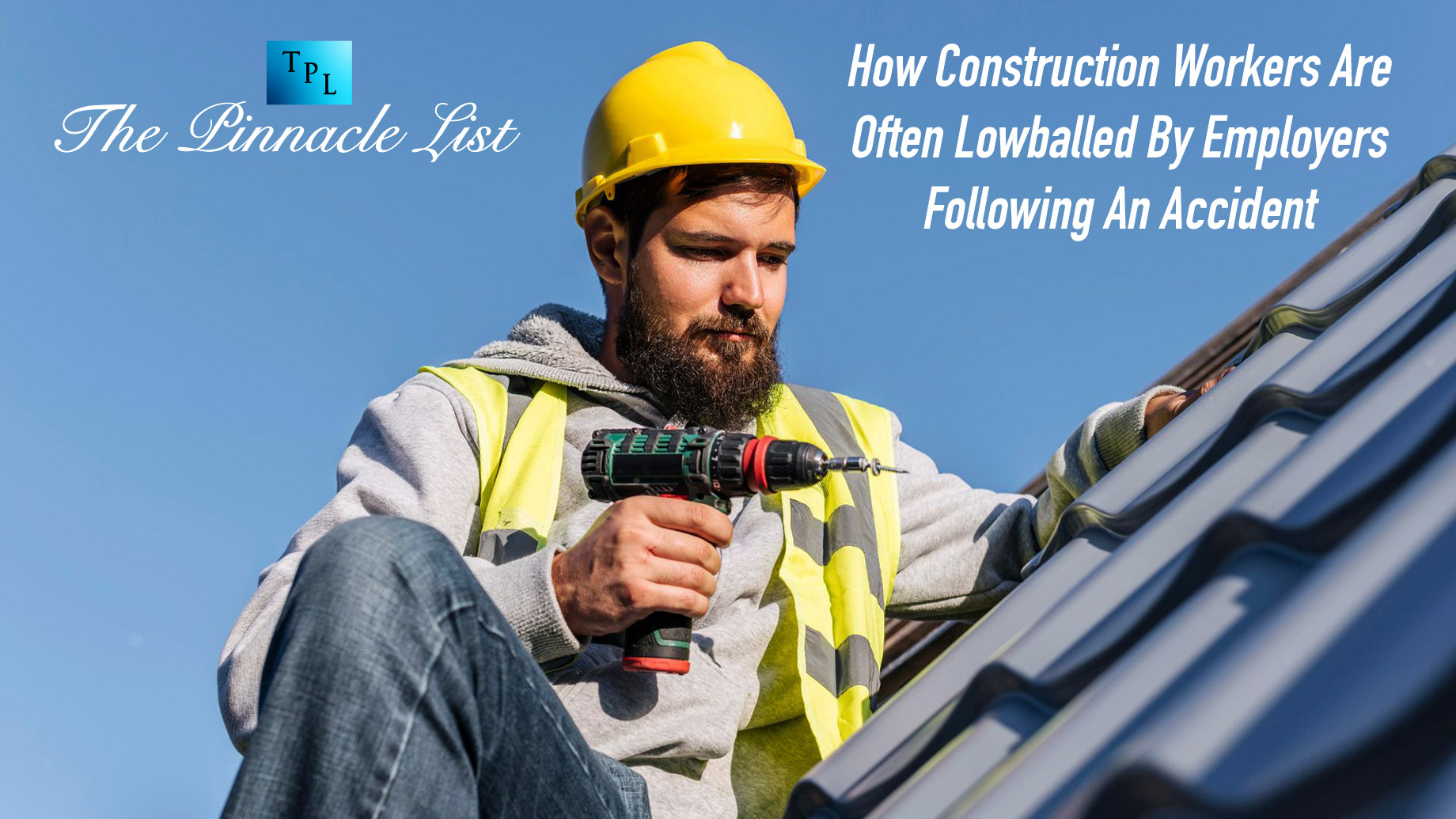
Sometimes, a construction worker is hired to work on a project and sustains injuries in an accident. If the company does not follow an established protocol for workers’ compensation claims, the worker may be forced to accept their lowball offer. In many cases, this will result in a settlement that pays workers less than $100,000. This settlement is often used to discourage further complaints from other construction workers about safety issues. Here are some of the ways construction workers are sometimes lowballed following an accident:
1. Medical Reports
A construction worker is injured at work and then submits their information to obtain some type of insurance payment through workers’ compensation. If the injury involves a minor injury, such as a finger bump or a back sprain, the company will often offer less than $100,000 for medical expenses and pain. If the worker refuses to take this deal, the company will counter by threatening to report this refusal of their offer to their medical provider. The thinking is that the worker’s future treatment may be denied if they do not accept this offer.
2. Threats of Termination
If a construction company hires a worker on an on-call basis, they may threaten to fire the worker if they do not accept their offer of less than $100,000 for medical expenses and pain. This is frequently done so the company will not be required to pay unemployment benefits to the worker after being fired by the employer.
3. Accident Reports
A construction worker may be offered a settlement amount below the worker’s medical expenses and pain if they agree not to file an accident report with their insurance company concerning that accident or other similar accidents. If the worker accepts this offer, they may face the chance of being fired in the future. The worker may also have their rights to sue their employer suspended if they do not agree. Consulting a workers compensation lawyer can help workers understand their rights and ensure they receive fair treatment when faced with such situations.
4. Union Issues
Some construction workers who are members of local unions do not offer the same premiums for on-the-job injuries as other unions. If a worker is a member of this union, they may be offered less than the number of medical expenses and pain in exchange for not filing a claim against their health insurance carrier. When dealing with a construction accident claim, a construction accident lawyer can often help to ensure that a worker receives the compensation they need to recover after an on-the-job injury.
In most cases, the negligence of a third party is not a defense. This is because gross negligence can never be used as a defense against a workers’ compensation claim. A key component of a workers’ compensation claim is that it must be shown that the employer had knowledge of the hazard and failed to correct it for liability attributed on behalf of the employer.
5. Subcontractors
The construction company sometimes uses subcontracting companies to perform smaller projects they feel they can do without. However, since subcontractors work on a per-project basis and may not be able to provide employee coverage, they often offer less than the amount of workers’ compensation that would be required if the worker claims were handled through the full liability carrier.
6. Property Ownership
Suppose a worker is injured on site but does not go through their employer’s workers’ compensation carrier. In that case, the property owner may be held liable for the injury if it was determined that they were negligent in their site maintenance. The worker may be offered less than the number of medical expenses and pain if they agree not to claim the property owner. For instance, a worker may be told not to claim workers’ compensation from their employer if they agree not to claim from the property owner.
7. Fear of Job Loss
Suppose a construction worker is injured on the job and has high medical expenses. In that case, they may be afraid that another worker will replace them if they do not accept the amount of money offered for medical expenses and pain. So, the worker might be offered a lesser amount for medical expenses if they agree not to file a workers’ compensation claim and accept that low offer.
8. Commission
Construction companies sometimes offer less than the amount of medical expenses and pain to encourage workers to join their union by offering them less than full coverage from their health insurance carrier. If a union member refuses to take this type of lowball offer, they may not receive as much for medical expenses and pain when they make another claim.
Conclusion
Construction workers are often lowballed following an accident. To avoid being lowballed, consider your employer’s other insurance claims practices and the type of construction you are working on to ensure you are using coverage that will be effective in covering your claim.